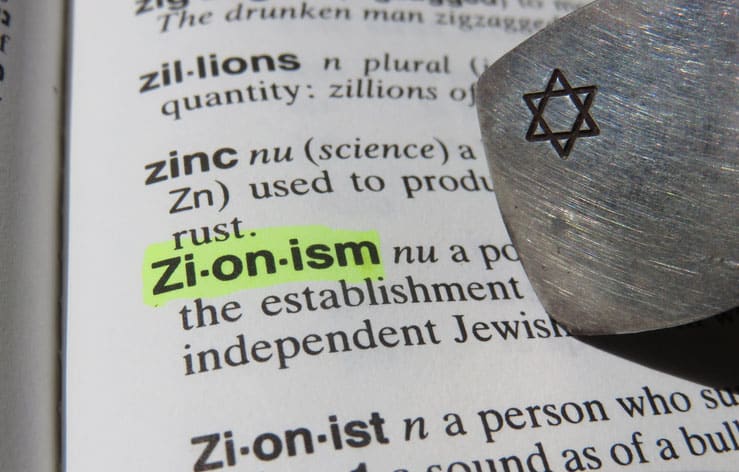 tzahiV/Getty Images
tzahiV/Getty Images Use of the anti-Zionistic card
makes life for Jewish Zionists most tough,
and therefore, some say, should be barred,
for puffing with a racist hateful huff.
“We are not anti-Semites,” players may
say poker-faced. “All that we hate is Zion.”
Don’t listen to a wokey word they say.
They need to get a life, as did not Brian,
and not, while cross though not upon a cross,
mislead the world by sounding like a saint.
The alienating card’s an albatross
that hovers round them since they really ain’t
hearts bleeding bloodlessly for Palestine,
in their antagonizing anamnesis,
thank God, just like an unexploded mine,
their love affair with hate, not Jesus.
Round all these players we should all run circley,
though it may be impossible to square
the Californian circle that’s in Berkeley,
and tell them that their arguments aren’t fair.
In “At Berkeley Law, a Debate Over Zionism, Free Speech and Campus Ideals: A student group, Law Students for Justice in Palestine, barred supporters of Zionism from speaking at its events. The outrage — and legal misunderstandings — grew from there,” NYT, 12/21/22, Vimal Patel writes:
On the first day of the fall semester, Erwin Chemerinsky, the dean of the law school at the University of California, Berkeley, learned that a student group created a bylaw that banned supporters of Zionism from speaking at its events.
Mr. Chemerinsky said he rarely used profanity but did so in that moment. As a constitutional law scholar and co-author of a book about campus free speech, Mr. Chemerinsky said that he knew the group, the Berkeley chapter of Law Students for Justice in Palestine, had the legal right to exclude speakers based on their views.
But he also knew the bylaw, which eight other student groups also adopted, would be polarizing within the law school and used as a cudgel by forces outside of it.
In hindsight, he said, he underestimated the response. The story “went viral in a way that I could have never possibly imagined,” he said.
The controversy, pushed along online by conservative commentators, hits two of the pressure points in campus politics today. The bylaw was adopted as antisemitism is rising across the country. And some critics of academia have cast left-wing students as censors who shout down other viewpoints, all but strangling, they say, honest intellectual debate.
That collision of issues all but guaranteed a tense debate over free speech, even if a broad swath of speech experts say that student groups are allowed to ban speakers whose views they disagree with.
“A student group has the right to choose the speakers they invite on the basis of viewpoint,” said Mr. Chemerinsky, who is Jewish and a Zionist. “Jewish law students don’t have to invite a Holocaust denier. Black students don’t have to invite white supremacists. If the women’s law association is putting out a program on abortion rights, they can invite only those who believe in abortion rights.”
Mr. Chemerinsky said that excluding speakers based on race, religion, sex or sexual orientation would not be allowed, but he noted that the student groups were excluding speakers based on viewpoint. True, he said, many Jews view Zionism as integral to their identity, but such deep passions do not change the law.
Other legal experts noted that the controversy showed just how mangled the understanding of the First Amendment had become, even at a place like Berkeley, the epicenter of the 1960s free-speech movement. The debate, they said, should focus on whether these bans align with the academic ideal of open, intellectual debate. Even if student groups can prohibit speakers, should they? And should such bans be codified — formally adopted with a bylaw?
Gershon Hepner is a poet who has written over 25,000 poems on subjects ranging from music to literature, politics to Torah. He grew up in England and moved to Los Angeles in 1976. Using his varied interests and experiences, he has authored dozens of papers in medical and academic journals, and authored “Legal Friction: Law, Narrative, and Identity Politics in Biblical Israel.” He can be reached at gershonhepner@gmail.com.























 More news and opinions than at a Shabbat dinner, right in your inbox.
More news and opinions than at a Shabbat dinner, right in your inbox.